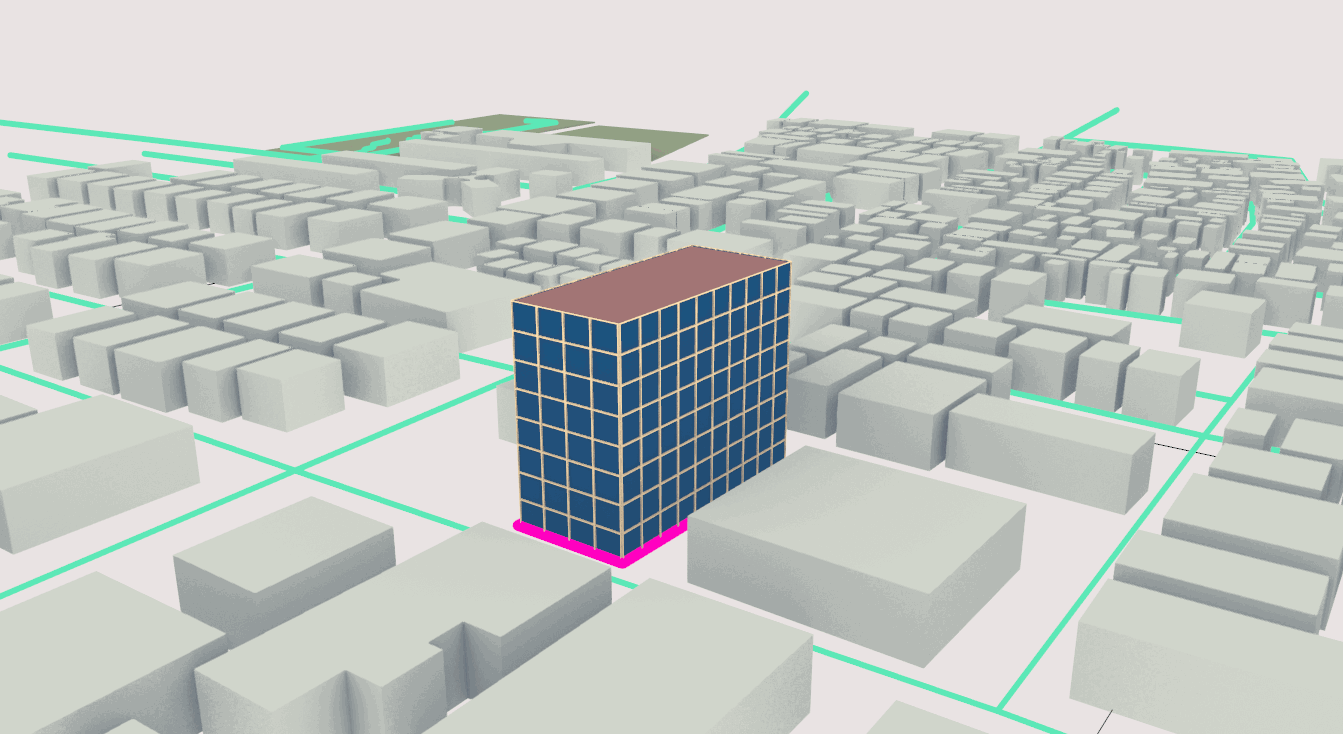Cluster [08]
Urban Geo-data and Grasshopper
Tutor: Sanjay Somnath (with Vinay Zachariah)
(Chalmers University of Technology, Sweden)
Date:12th & 13th Sept 2020 (Saturday & Sunday)
Time: 12 PM - 8 PM IST // 6:30 AM - 2:30 PM GMT
Duration: 2 DAYS // 8 Hours on all 2 days
Type: Interactive Tutorial Workshop
Registration Fee: INR 7500 // $100
Max. Spots: 16
[ Check ticketing platform(Explara) to see available ticket quantity ]

[ ] Workshop Title
Urban Geo-data and Grasshopper
[ ] Key Software / Tech to be taught
Open Street Maps (OSM), Grasshopper (GH), GH Plugins – ELK, Urbano, Ladybug, (other plugins for future exploration)
[ ] Workshop Description
In the built environment, buildings do not exist in in isolation. They are a part of a larger complex system that form the surrounding context that has a strong influence on the aesthetic and performative aspects of the building. However, understanding the context requires access to and management of large dataset of “hard” and “soft” urban data that is often time consuming and expensive to obtain. Open Street Maps (OSM) is a popular crowd-sourced database of building footprints, road networks and other geo-data. This workshop will cover the fundamental concepts of
o GIS and geo-data
o Importing and managing OSM data layers in grasshopper
o What analysis can be performed on this data.
o Further Explorations
Theoretical Background
-
GIS Fundamentals
-
Site analysis and planning in GH
Intended Learning Outcomes
-
The participants will have a sound understanding of theoretical concepts on how map-projection systems work, Limitations of grasshopper in handling large datasets and site analysis and planning techniques that can be adopted in grasshopper.
-
Practical understanding of working with OSM and importing OSM data into grasshopper, Generative design and environmental analysis in grasshopper, translating architectural site analysis methods into grasshopper.
-
General information regarding the state-of-the-art in digital twins, geo-data and digital design in AEC.
Teaching Methodology (x2 days – 3 sessions each)
The target for this workshop is - intermediate to advanced grasshopper users (Max 12), planners, and architects. The workshop will be conducted over zoom over 2 days. A primer document with the grasshopper files will be circulated 2 days before the workshop date.
[ ] Keywords
#OSM #UrbanAnalysis #DigitalTwins #GenerativeEnvelope #Opendata #Urbandata #GIS
[ ] Workshop Duration & Type
Duration: 2 DAYS // 8 Hours on all 2 days
Type: Interactive Tutorial Workshop
[ ] Detailed Schedule
Day 1 (OSM Data)
o Session 0 – Introduction and background
o Session 1 – Theoretical Introduction
o Session 2 – Hands on workshop
o Session 3 – Summary and Discussion
Day 2 (Analysis)
o Session 1 – Theoretical Introduction
o Session 2 – Hands on workshop
o Session 3 – Summary and Discussion
After each session, we will have a feedback session to understand
• Your design workflow
• what role urban data can play in your work
• software capabilities that would be useful to designers and planners
• Future of Open-data and Digital Twins

[ ] Tutor Details
Sanjay Somanath is an Architect and a PhD researcher at Chalmers University of Technology. The focus of his research is "Digitizing Urban Social Sustainability" and creating digital tools to allow architects to measure and design for Social Sustainability of neighbourhoods. Sanjay has previously worked in Qatar and UK in the sustainability sector, focusing on digital design optimisation of greenhouses, solar farms, and fabrication.
Vinay Zachariah is an Architect and a Masters student in the computation methods in Architecture program at Cardiff University. His current focus is exploring computational design techniques and using technology as a driver for thinking, forming, and realizing architecture. Vinay has previously worked in Qatar and India primarily on residential and landscaping projects.
[ ] Max Participants allowed
16
[ ] List of FAQ
Q1 - What software do I need to install before the workshop?
A1 - The software we will be working with is Rhino 6. Trial and educational versions can be found here - https://www.rhino3d.com/download
Q2 - Can I join with no prior experience in Rhino or Grasshopper?
A2 - Ideally, the workshop is designed to cater to users that have been using grasshopper for atleast an year. However, you can still join and follow the concepts and understand the potential of the workflows presented.
Q3 - Will the workshop be recorded to view later?
A3 - Yes, a video recording will be provided.
Q4 - What will I learn at the end of the workshop?
A4 –
• The participants will have a sound understanding of theoretical concepts on how map-projection systems work, Limitations of grasshopper in handling large datasets and site analysis and planning techniques that can be adopted in grasshopper.
• Practical understanding of working with OSM and importing OSM data into Grasshopper, Generative design and Environmental analysis in grasshopper, translating architectural site analysis methods into Grasshopper.
• General information regarding the state-of-the-art in digital twins, geo-data and digital design in AEC.
[ ] Recording Provided?
Partial Recording would be provided to safeguard workshop content by tutor
![rat[LAB] Logo](https://static.wixstatic.com/media/620f22_133c4fae783c4e2dbc4d10827a47885e~mv2.png/v1/crop/x_0,y_413,w_6019,h_1108/fill/w_300,h_50,al_c,q_85,usm_0.66_1.00_0.01,enc_avif,quality_auto/rat%5BLAB%5D%20Logo.png)












